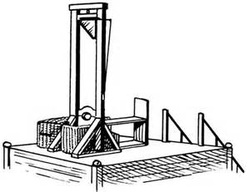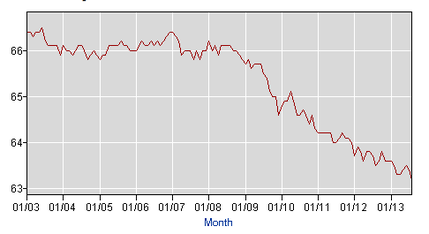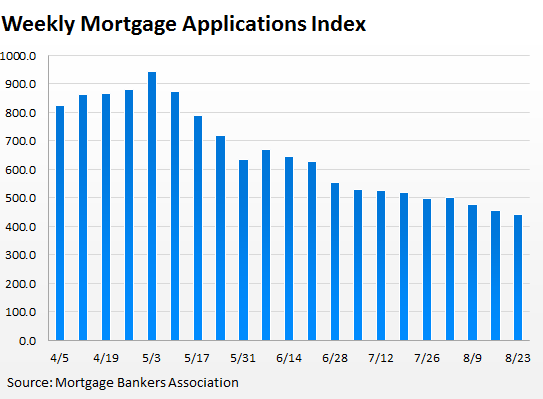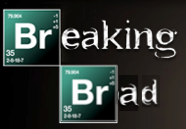
We at SSWM are proud to be heralded as early adopters of the cable television series Breaking Bad on AMC. The series premiered on January 20th, 2008. A year that would see the tragic death of our life long mentor and the start of the world economic meltdown. What a godsend it was to find this show that allowed a distraction from so much pain and anguish.
We consumers are patsies for 'must have' new products. Whether it is bragging rights for discovering it first, or just keeping up with the Joneses, we gobble up most everything that is thrown at us. How refreshing is it when you have to go and seek out something special. Of note, for us at SSWM, are Cascade Dish-washing Powder, Thomas' English Muffins, Caspian Lake in Greensboro, Vermont and the guitar playing of Kenny Wayne Shepherd. Superior quality, short supply and hard to find, these products sell themselves and can command a premium.
We consumers are patsies for 'must have' new products. Whether it is bragging rights for discovering it first, or just keeping up with the Joneses, we gobble up most everything that is thrown at us. How refreshing is it when you have to go and seek out something special. Of note, for us at SSWM, are Cascade Dish-washing Powder, Thomas' English Muffins, Caspian Lake in Greensboro, Vermont and the guitar playing of Kenny Wayne Shepherd. Superior quality, short supply and hard to find, these products sell themselves and can command a premium.

SSWM could not help but return each week to watch the dealings of the overqualified Albuquerque chemistry teacher turned meth cook. Great story, great dialogue, superior acting (Bryan Cranston - Anna Gunn - Aaron Paul - Dean Norris - Betsy Brandt - RJ Mitte - Bob Odenkirk - Giancarlo Esposito - Jonathan Banks - Laura Fraser - Jesse Plemons) by all characters and so many similarities to actual business and leadership that it could, and should be, its own MBA program.

Like any superior product, Walter White's sells itself. He is able to command a premium price as he dominates the market. All the forces of competitive markets are at play here. Remember:
Threat of new entrants - profitable markets that yield high returns will attract new firms. This results in many new entrants, which eventually will decrease profitability for all firms in the industry. Unless the entry of new firms can be blocked by incumbents, the abnormal profit rate will trend towards zero (perfect competition).
Threat of new entrants - profitable markets that yield high returns will attract new firms. This results in many new entrants, which eventually will decrease profitability for all firms in the industry. Unless the entry of new firms can be blocked by incumbents, the abnormal profit rate will trend towards zero (perfect competition).
- The existence of barriers to entry (patents, rights, etc.) The most attractive segment is one in which entry barriers are high and exit barriers are low. Few new firms can enter and non-performing firms can exit easily
- Economies of product differences
- Brand equity
- Switching costs or sunk costs
- Capital requirements
- Expected retaliation
- Access to distribution
- Customer loyalty to established brands
- Absolute cost
- Industry profitability; the more profitable the industry the more attractive it will be to new competitors.

Threat of substitute products or services - the existence of products outside of the realm of the common product boundaries increases the propensity of customers to switch to alternatives. For example, tap water might be considered a substitute for Coke, whereas Pepsi is a competitor's similar product. Increased marketing for drinking tap water might "shrink the pie" for both Coke and Pepsi, whereas increased Pepsi advertising would likely "grow the pie" (increase consumption of all soft drinks), albeit while giving Pepsi a larger slice at Coke's expense. Another example is the substitute of traditional phone with VoIP phone.
- Buyer propensity to substitute
- Relative price performance of substitute
- Buyer switching costs
- Perceived level of product differentiation
- Number of substitute products available in the market
- Ease of substitution - information-based products are more prone to substitution, as online product can easily replace material product
- Substandard product
- Quality depreciation
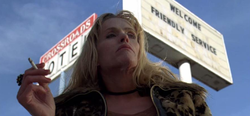
Bargaining power of customers (buyers) - the bargaining power of customers is also described as the market of outputs: the ability of customers to put the firm under pressure, which also affects the customer's sensitivity to price changes. e.g. firm can implement loyalty program to reduce the buyer power.
- Buyer concentration to firm concentration ratio
- Degree of dependency upon existing channels of distribution
- Bargaining leverage, particularly in industries with high fixed costs
- Buyer switching costs relative to firm switching costs
- Buyer information availability Force down prices
- Availability of existing substitute products Buyer price sensitivity

Bargaining power of suppliers - the bargaining power of suppliers is also described as the market of inputs. Suppliers of raw materials, components, labor, and services (such as expertise) to the firm can be a source of power over the firm, when there are few substitutes. Suppliers may refuse to work with the firm, or, e.g., charge excessively high prices for unique resources.
- Supplier switching costs relative to firm switching costs
- Degree of differentiation of inputs
- Impact of inputs on cost or differentiation
- Presence of substitute inputs
- Strength of distribution channel
- Supplier concentration to firm concentration ratio
- Employee solidarity (e.g. labor unions)
- Supplier competition - ability to forward vertically integrate and cut out the BUYER

Intensity of competitive rivalry - for most industries, the intensity of competitive rivalry is the major determinant of the competitiveness of the industry.
- Sustainable competitive advantage through innovation
- Competition between online and offline companies
- Level of advertising expense
- Powerful competitive strategy
- Firm concentration ratio
- Degree of transparency

Walter White has many good qualities, at least at the beginning. An extremely respectable trait in employers is the role of nurturer, understand employees and what they want, believe in your human capital and grow them as individuals. The Harvard Business Review article ( One-quarter of the highest-potential people in your company intend to jump ship within the year) on How to Keep Your Top Talent lists the following:
1. Don’t just assume they’re engaged. If emerging leaders don’t get stimulating work, lots of recognition, and the chance to prosper, they can quickly become disenchanted.
2. Don’t mistake current high performance for future potential. Stars will have to step up into tougher roles. Explicitly test candidates for three critical attributes: ability, engagement, and aspiration.
3. Don’t delegate talent development to line managers. That only limits stars’ access to opportunities and encourages hoarding of talent. Manage the quantity and quality of high potentials at the corporate level.
4. Don’t shield talent. Place stars in “live fire” roles where new capabilities can—or must—be acquired.
5. Don’t assume high potentials will take one for the team. A critical factor determining a rising star’s engagement is the sense that she is being recognized—primarily through pay. So offer A players differentiated compensation and recognition.
6. Don’t keep young leaders in the dark. Share future strategies with them—and emphasize their role in making them real.
1. Don’t just assume they’re engaged. If emerging leaders don’t get stimulating work, lots of recognition, and the chance to prosper, they can quickly become disenchanted.
2. Don’t mistake current high performance for future potential. Stars will have to step up into tougher roles. Explicitly test candidates for three critical attributes: ability, engagement, and aspiration.
3. Don’t delegate talent development to line managers. That only limits stars’ access to opportunities and encourages hoarding of talent. Manage the quantity and quality of high potentials at the corporate level.
4. Don’t shield talent. Place stars in “live fire” roles where new capabilities can—or must—be acquired.
5. Don’t assume high potentials will take one for the team. A critical factor determining a rising star’s engagement is the sense that she is being recognized—primarily through pay. So offer A players differentiated compensation and recognition.
6. Don’t keep young leaders in the dark. Share future strategies with them—and emphasize their role in making them real.

Well, we'll learn the fate of Heisenberg tonight. In the morning, we'll go about our daily business rituals. What went wrong for Walt? No debating that he is/was a master strategist. The smartest guy in the room. We would be naive if we felt that much of business today is not based on exploiting the financial rewards of breaking the law.
Management styles are unhinged by greed, the promise of wealth and power, settling old scores, need for recognition, building individual empires, maximization of profits at the expense of internal and external relationships and often darker motivations hatched by the mind.
Management styles are unhinged by greed, the promise of wealth and power, settling old scores, need for recognition, building individual empires, maximization of profits at the expense of internal and external relationships and often darker motivations hatched by the mind.

Resentment rarely leads to correct business decisions. We have seen thousands of leaders fail as they compromise their own ethics and integrity. Walter White's demise is not that far removed from many business leaders past and present:
Bradford C. Bruner for Sua Sponte Wealth Management
- Lack of Humility
- Unable to understand ones own limitations
- No self-awareness
- Disregard for how one is viewed by colleagues
- Lack of basic empathy
- Ruthless vs. vision and openly supportive spirit
- Harsh not merciful (which leads to courage)
- Careless not frugal (which leads to generosity to others)
- Arrogance not humility (which leads to strong leadership)
Bradford C. Bruner for Sua Sponte Wealth Management



